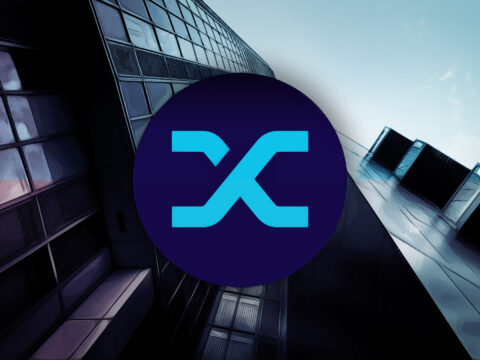
What is BitTorrent Token (BTT)?
BitTorrent was initially created by developers Brad Cohen and David Harrison in 2001. The BitTorrent software facilitates file sharing over a peer-to-peer network, becoming widely employed in the early 2000s for large file exchange among peers (ex. music and movies).
Instead of downloading or uploading files to one server, users join a network of computers running BitTorrent software that enables the exchange of files and data with one another.
The BitTorrent software allows collaboration among peers accessing its network to compute file-sharing requests. Transactions begin when a user asks for files from providers hosting them on their computer.
The provider hosting the requested file splits it into multiple pieces of equivalent size. If requesters wish to download said file, they receive pieces of identical files from multiple providers.
Approximately 40% of the world’s daily internet traffic runs on the BitTorrent protocol. At a given moment, BitTorrent would have, on average more active users than YouTube and Facebook combined. Moreover, the closure of Megaupload considerably increased the utilization of this protocol.
But with time, BitTorrent struggled to monetize its widely used service.
What is the Purpose of BitTorrent Token (BTT)?
In 2019 the Tron Foundation, creators of the Tron blockchain and under the direction of Justin Sun, acquired BitTorrent Foundation. Around six months later, the new owners introduced a BitTorrent token cryptocurrency, BTT, to assist in expanding its protocol and incentivize the network’s participants.
BTT token went public through an Initial Coin Offering (ICO). The BitTorrent team issued the sale of 6 percent of the whole BTT supply for the equivalent of roughly $7.2 million.
With BTT token, the BitTorrent team reinforces incentives to torrenting and solve issues like slow download speed and the diminishing availability of files over time.
In other words, the BTT project incentivizes its users to promote their collaboration. The common goal is to have them work together on optimizing and prolonging the lifespan of BitTorrent ‘swarms’ (imagine a bee swarm) which means, all peers together (requesters and providers) participating in a torrent.
The expansion of BitTorrent with BTT was intended to create it a more distributed network, compensating providers while increasing the efficiency of sharing large files to cut back server and network impact.
How Does BitTorrent (BTT) Work?
BTT coin is bought and spent by people who request files or wish to extend their download speed, while providers need to receive and sell BTT to be compensated for sharing the files on their systems.
Requesters regularly offer BTT tokens to providers in order to enhance their local resources, like bandwidth to receive content or storage for remote backup.
Once a bid is matched between a requester and providers, the Tron platform generates a payment channel to facilitate the micropayments to providers. When the service is finalized, these micropayments are grouped, allocated, and logged on the Tron blockchain.
By buying and spending BTT, requesters gain the power to buy priority access to file downloads, additionally as computational services to extend the speed of a download.
Overall, BTT token is the cryptocurrency needed to access features on the network. BTT’s goal is to become the central feature of the torrenting ecosystem. Moreover, it’s the sole payment style by requesters once they enter into agreements with providers.
The BitTorrent network consequently helps promote Tron’s suite of smart contracts, spreading decentralized applications (dApps) meant to reinforce its services.
Among these, the primarily used dApp is BitTorrent Speed, which provides requesters the flexibility to buy into the use of the BitTorrent filing system (BTFS), a file storage protocol created to avoid problems with cost and trust associated with centralized storage systems.
BTFS works similarly to Filecoin, Siacoin, and Storj, other decentralized cloud storage platforms.





